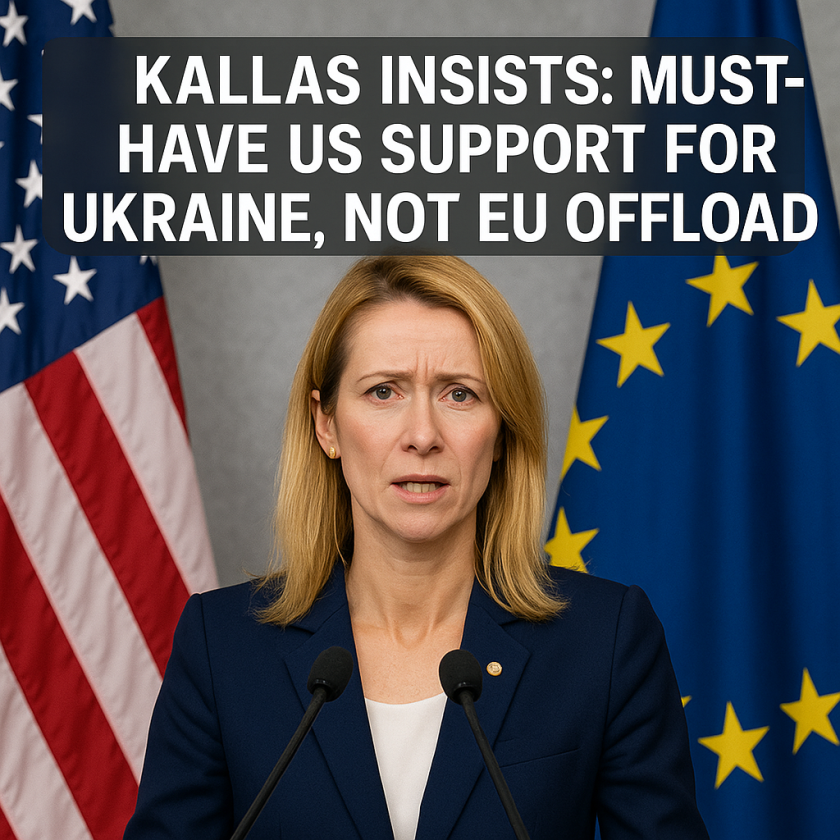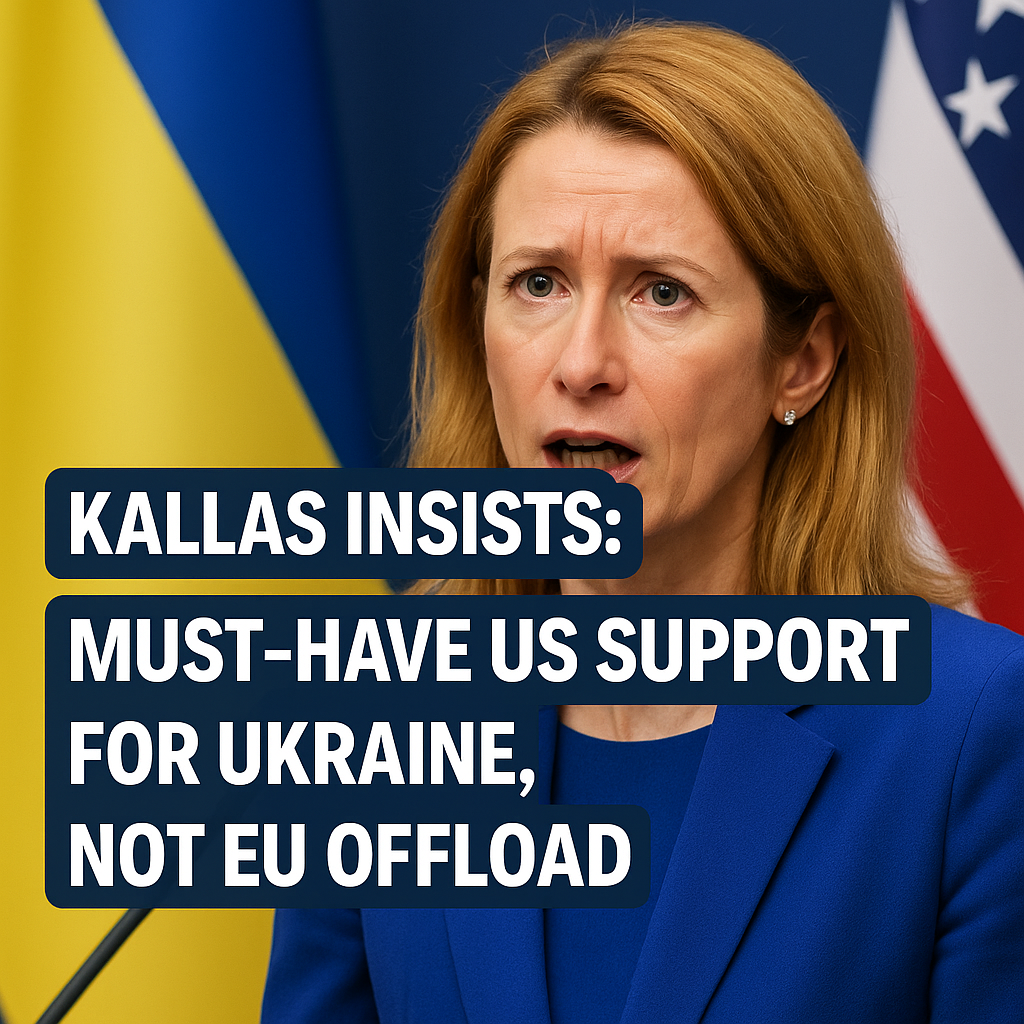Kallas Insists: Must-Have US Support for Ukraine, Not EU Offload
Kallas Insists: Must-Have US Support for Ukraine, Not EU Offload
In the ever-evolving geopolitical landscape, the conversation around Ukraine’s support remains critical, especially regarding the role of the United States versus that of the European Union. Recently, Estonia’s Prime Minister, Kaja Kallas, emphasized the necessity of unwavering U.S. backing for Ukraine amidst concerns about potential shifts in European commitments.
Kallas’s Standpoint: A Call for U.S. Commitment

Kallas’s insistence on U.S. support encapsulates her belief that Europe’s security framework is inextricably linked to American involvement. During a speech addressing both allies and critics, she pointed out that a diminished American role could embolden adversaries and undermine the collective Western response to Russian aggression.
This stance is not merely rhetorical. Kallas noted the historical context, referencing the U.S.’s leading role in NATO and its pivotal position during previous crises. “If we are to achieve anything meaningful in Ukraine, we must secure strong American resolve,” she stated, underscoring the precarious nature of relying solely on EU nations for military and financial assistance.
Divergent Views on EU Responsibility
While Kallas’s arguments highlight the strategic necessity of U.S. involvement, opinions vary significantly on the European Union’s capabilities and obligations. Some EU leaders maintain that Europe can and should take the reins in supporting Ukraine. They argue that the EU has increasingly unified its stance against Russia since the invasion began and that member states are ready to escalate their contributions independently of the U.S.
Critics of Kallas’s view raise points about Europe’s potential to provide substantial military and humanitarian assistance without direct American oversight. They argue that growing solidarity among EU nations can serve as an effective deterrent against further Russian aggression. In fact, recent military aid packages from EU countries highlight a burgeoning readiness for independent action, showcasing initiatives like increased arms production and distribution among member states.
The Implications: American Leadership vs. European Autonomy
The crux of the debate lies in finding a balanced approach between U.S. leadership and European independence. Proponents of Kallas’s perspective fear that without U.S. support, Ukraine might face insurmountable challenges, putting it at a strategic disadvantage. There are concerns that the American domestic political climate could sway toward a decrease in international engagement, especially with the looming U.S. elections that may herald a shift in priorities.
Conversely, EU advocates emphasize the necessity of fostering a stronger, self-reliant European defense capability. They argue that not only would this distribute the burden of support more evenly, but it would also enhance EU unity and cohesion, ultimately leading to a more balanced global order. “A Europe equipped to respond swiftly and decisively would reduce dependency on American support,” one EU official remarked, hinting at a desire for more strategic autonomy.
Assessing the Road Ahead
Navigating the complex web of international relations requires weighing multiple perspectives. As Kallas pushes for solid U.S. support, she faces a growing chorus calling for stronger European engagement. The path forward remains fraught with challenges and uncertainties. Will the U.S. maintain its leadership role, or will European nations rise to the occasion, reducing reliance on American aid?
Both routes present potential risks and rewards. The situation in Ukraine demands comprehensive support, and while Kallas is right to emphasize the need for strong American involvement, the EU’s evolving role cannot be overlooked.
In summary, the debate is not simply about who supports Ukraine; it reflects broader trends in international relations as nations grapple with shifting alliances, security strategies, and long-term visions. As geopolitical tensions persist, the balance of support will likely define not only Ukraine’s fate but also that of international diplomacy as a whole.




































